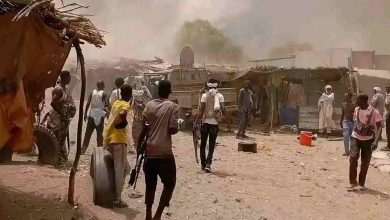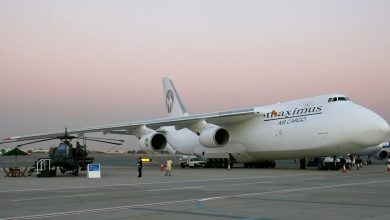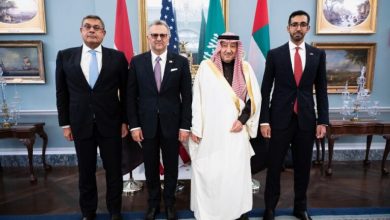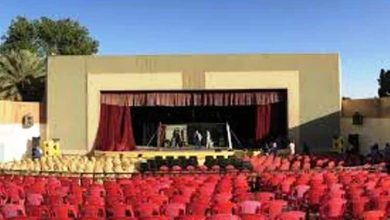Reports
Despite Emirati Support for the Militia, the Army Achieves Sweeping Victories

Sudan Events – Agencies
The United Arab Emirates has economic and strategic objectives behind its financial and military support for the rebel militias in Sudan, represented by the Rapid Support Forces. These objectives include seeking a foothold in East Africa and the Horn of Africa. Sudanese thinker Taj Al-Sir Osman tweeted that in recent years, the UAE has become the preferred policeman for those with suspicious agendas in the region. Osman explained that the UAE’s intervention is not only functional but aligns with a corrupt agenda to achieve its economic interests, even at the cost of stirring conflicts and destabilizing countries for its unworthy ambitions. He mentioned that the UAE believes its economic future is fraught with risks, as Gulf countries adopt post-oil strategies. For example, Saudi Arabia has chosen to attract companies, manufacturing, technology, and tourism, while Qatar has invested in real estate, media, sports, bonds, and aviation. He stated that the UAE is uncertain about the sustainability of the transport privileges it has acquired and that if stable countries emerge, they will develop their ports. Additionally, the emergence of a Saudi giant threatens the UAE’s interests, and its effects have become evident, especially when the Saudi market forced major companies to relocate their headquarters to the Kingdom.
Seizing Ports:
Osman noted that the UAE preemptively sought to seize the ports of Aden, Somalia, and Djibouti in the face of intense competition to impose a monopoly on the congested maritime routes leading to the Red Sea. He explained that Abu Dhabi has contributed little to these countries because its unsavory goal was to disrupt these ports to promote Dubai’s ports. Osman mentioned that Somalia, supported by its Turkish allies, recognized the dangers of UAE interference in its capacity when the UAE supported the division of Somalia and seized the port of Berbera, just as it did in Yemen by supporting separatist mercenaries and hindering Aden. However, Somalia decided to expel the UAE presence, while the port of Aden remained dysfunctional. On the other hand, Djibouti decided to nationalize the Doraleh ports, which were under the control of Dubai Ports World, after the UAE’s unworthy goals became clear.
Dubai Faces Economic Strikes:
As a result, the UAE has suffered several economic blows that have undermined its grand dream of gaining control over the Red Sea shipping lanes. According to Osman, after the failure of the UAE’s project to become the world’s economic and technological hub for two natural reasons—the unsuitable climate and its location being a waste of fuel—there is little sense in bringing global goods into the Gulf and then re-exporting them. Osman further explained that four projects have delivered significant blows to the UAE’s ambitions. These include preparing Singapore to become the center of economics and business, developing Kigali in Rwanda or Ethiopia to become a technology hub, reviving the Silk Road project connecting Europe to China, and the Chinese Gwadar Port project in Pakistan, which threatens the existence of Dubai’s Jebel Ali Port.
Gold Smuggling:
Thus, the UAE is desperately searching for its future, now threatened by powerful competitors on both sides, and is using all its resources to create mercenaries and militias loyal to it on international routes to threaten its competitors and create influential conflict zones while keeping the keys to control for its own economy. Not far from the ports war, the UAE is active in smuggling gold from Sudan and coordinating with Rapid Support Forces leader Mohammed Hamdan Dagalo (Hemedti) to extract and sell it outside the Sudanese government’s oversight. An international investigation previously condemned the UAE for being involved in smuggling Sudanese gold to finance conflicts between countries, serving its ambitions to gain influence and expand.
Army Victories:
Despite Emirati funds and logistical support, the Sudanese army recently launched intense attacks on the Rapid Support Forces and regained control of several areas. The army, along with the joint force of armed struggle movements, announced the recovery of areas in North Darfur from the grip of the Rapid Support Forces militia. In a tweet on Facebook, Darfur region governor Mini Arko Minawi confirmed that the armed forces and the joint force, along with popular support, succeeded in liberating the Bir Mazza area, located on the borders of the Al-Zarq and Wadi Al-Maghrib regions north of Kattum and Damarah Garir. Additionally, sources reported the recovery of the Medu area and some areas near the village of Al-Sayah, close to Al-Fasher. The joint forces completely wiped out the first group of rebels and seized 35 military vehicles in good condition, destroying more than 20 other vehicles. The armed forces also liberated several areas in central Sudan, including Senga, Sakar Sinnar, Jabal Muya, Hajar Al-Asal, Umm Al-Qari, Wadi Al-Haddad, Sukki, and Dinder, and in North Kordofan, are close to liberating Umm Rawaba, among others.
Militia Defections:
Despite its financial capabilities, the militia has faced significant defections. The most prominent defector was Abu Aqila Kikil, who was leading the militia in central Sudan and stationed his forces in the Gezira State and parts of the neighboring Sinnar and White Nile states. Additionally, five of Hemedti’s advisors defected from the Rapid Support Forces, declaring their support for the army. They include legal expert Mohamed Abdullah Wadabouk, the supervisor of the eastern file of the Rapid Support Forces Abdelkader Ibrahim Ali Mohamed Agirei, who was very close to the RSF leader, Naway Ismail Al-Daw, head of the strategic planning sector, Mohamed Osman Omar, an international expert in digital media, and Abdelrahman Ali Hamdo, head of the legal sector.
Source: Asda’a Sudan



